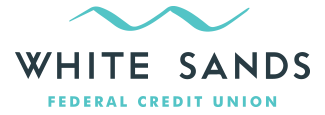Mortgage loans for beginners

Buying a home is a complicated process, and so is obtaining a loan to assist with the purchase. If you are new to the mortgage loan process, read on to understand how it all works.
A mortgage loan is simply a loan to purchase your home. They are useful because most people don’t have the cash to pay for a home. When you consider the average listing price for homes in Las Cruces is around $200 thousand and is $180 thousand in El Paso, you can see why most people require a mortgage loan to assist them with the purchase of their home.
When you take out a mortgage loan, you enter into an agreement with a mortgage lender, whereas they give you the cash you need to pay the seller of the home, and you agree to make payments over a period of time until the money is paid back. The home and the land it sits on is the collateral for the loan. If you fail to make the loan payments, the lender can take possession of the house and sell it.
Types of mortgage loans
There are three basic types of mortgage loans. One, the conventional mortgage, is available from private lenders. The other two, the VA (Veterans Affairs) and FHA (Federal Housing Authority) are guaranteed or insured by the US Government, so they are less risky for the lender.
Conventional
This type of loan is not insured or guaranteed by the federal government and thus represents somewhat more risk to the lender. The term of the loan (how long you have to pay back the amount borrowed) is typically 15, 20 or 30 years. Conventional loans can have a fixed interest rate or an adjustable interest rate.
- A fixed interest rate does not change over the term of the loan. The advantage of a fixed rate is the principle payment remains the same until the loan is paid off. This makes it easy to budget.
- An adjustable interest rate can change, along with whatever benchmark or index it is based on. It will increase or decrease, which will cause the monthly payment to increase or decrease. Typically, an adjustable rate is fixed for a certain period of time, such as 3 to 5 years, and after that it “adjusts” periodically. The advantage of this type of loan is when the rate index is low, the payment will be low. But the opposite happens when the rate index goes up – the payment also goes up.
FHA
This type of mortgage loan is insured by the Federal Housing Administration mortgage insurance program. The insurance protects the lender in case the borrow cannot pay back the loan, thus making it less risky than a conventional loan. FHA mortgage loans only require a 3.5 percent down payment, but that level of down payment will require private mortgage insurance.
VA
This type of mortgage loan is for active, reserve and retired military members and their families. It is guaranteed by the US Department of Veterans Affairs. This type of loan does not require any down payment and does not require private mortgage insurance.
Components of a mortgage loan
A mortgage loan has a number of components. Some are dealt with upfront when the loan is made, and some are present over the term of the loan.
Down payment
This is an amount that the buyer contributes of his/her own funds to purchase the home. Some types of loans require a down payment and other types do not. For example, a typical conventional mortgage from a private lender will ask for a minimum of 3 percent down payment. If you are purchasing a $200 thousand home, then you would be expected to provide the first $6 thousand. Moreover, the down payment signals to the lender that you are a not too risky and are unlikely to default (stop paying the payments) because you put in a significant amount of your own money into the purchase. A VA loan does not require a down payment. An FHA loan requires a 3.5 percent down payment.
Private mortgage insurance
If you take out a conventional or FHA loan and are not able to make a down payment of 20 percent, you will be required to buy private mortgage insurance. This protects the lender if you default on the loan. Once you have paid down the mortgage loan to 78 percent of the appraised value, the private mortgage insurance can be dropped. The private mortgage insurance premium is added to the monthly mortgage payment.
Term
This is the length of time you have to pay back the loan. Typical mortgage terms are 15, 20 and 30 years.
Principle
This is the actual amount you are borrowing from the lender. The principle includes the purchase price, minus any down payment, plus any costs that are rolled into the loan such as appraisal fees, points, inspection costs and title research fees.
Interest
This is the cost of borrowing the money to purchase the home. It can be either a fixed interest rate, (does not ever change) or an adjustable rate (can change periodically after a set period of time, like three to five years).
Taxes
People who own property have to pay property taxes each year to the county or city in which they reside, and these taxes are often part of the payment. These taxes pay for schools, parks, police departments and other municipal benefits.
Homeowner’s insurance
When you borrow money to purchase a home, the lender wants to make sure the home is insured against damage or destruction. The borrow will be required to purchase a homeowner’s insurance policy. The monthly payment for this policy is often included in the monthly mortgage payment.
Payment
This is what you will pay each month to the lender, to pay back the money you borrowed to buy the home. The payment includes a portion of the principle, a month’s worth of interest charges, a monthly portion of your property taxes, your monthly homeowner’s insurance cost and private mortgage insurance if your down payment wasn’t enough.
Other costs you will encounter
There are other costs associated with buying a home that deserve mention. Some can be rolled into the mortgage loan, and others cannot. They are also known as closing costs as they are paid at the closing of the mortgage, when all the papers and contracts are signed. Listed here are only the most common. There can be many others.
Appraisal fee
The lender will have an appraisal company evaluate the home being purchased to determine its true value. If you are buying a home for much more than the appraised value, the lender will balk.
Home inspection
Lenders usually require an inspection of the home be done to make sure it is structurally sound. Home inspections will turn up any unexpected problems, or verify any disclosed problems.
Origination fee
This is what the lender charges to evaluate the borrower, obtain reports, and prepare the mortgage loan.
Prepaid interest. The lender will require you to pay whatever interest accrues between the closing date and the first payment.
Points
These are sometimes paid by the borrower to reduce the interest rate, thus reducing the monthly payment.
Title search fee
The lender will require a title company to search property records to make sure there are no unexpected liens or other claims on the property. Additionally, there is fee for a title search insurance policy, which protects the lender in case the title company makes a mistake and doesn’t discover a prior claim on the property.
Escrow
If the lender includes the taxes and insurance in the payment, they will require a certain amount be put into an escrow account so they can pay these two bills when they are due – usually six months’ worth of expense.
Talk to us at White Sands FCU!
White Sands FCU offers conventional fixed-rate mortgage loans for 15, 20, and 30 year terms. Our mortgage loan officers are very knowledgeable and will help you during each step of the mortgage process. If you are considering a home purchase, contact us and let us help. There are also three Mortgage Rewards programs available, which you can learn more about at this link.
Contact Us
Call Center:
(575) 647-4500 or
Hours of Operation:
Monday thru Friday, 8 am-5 pm
Mailing Address:
P.O. Box 99
Las Cruces, NM 88004
Routing & Transit # 312276470
Federally Insured by NCUA
Your savings federally insured to at least $250,000 and backed by the full faith and credit of the U.S. Government. National Credit Union Administration, a U.S. Government Agency.
Equal Housing Lender
We do business in accordance with the Federal Fair Housing Law and the Equal Credit Opportunity Act.
White Sands Federal Credit Union is committed to providing a website that is accessible to the widest possible audience in accordance with the WCAG 2.0 standards and guidelines. We are actively working to increase accessibility and usability of our website to everyone. If you are using a screen reader or other assistive technology and are encountering problems using this website, please contact us at 575-647-4500 or 1-800-658-9933. Please provide the location of the inaccessible information. All products and services available on this website are available at all White Sands Credit Union branch locations.

